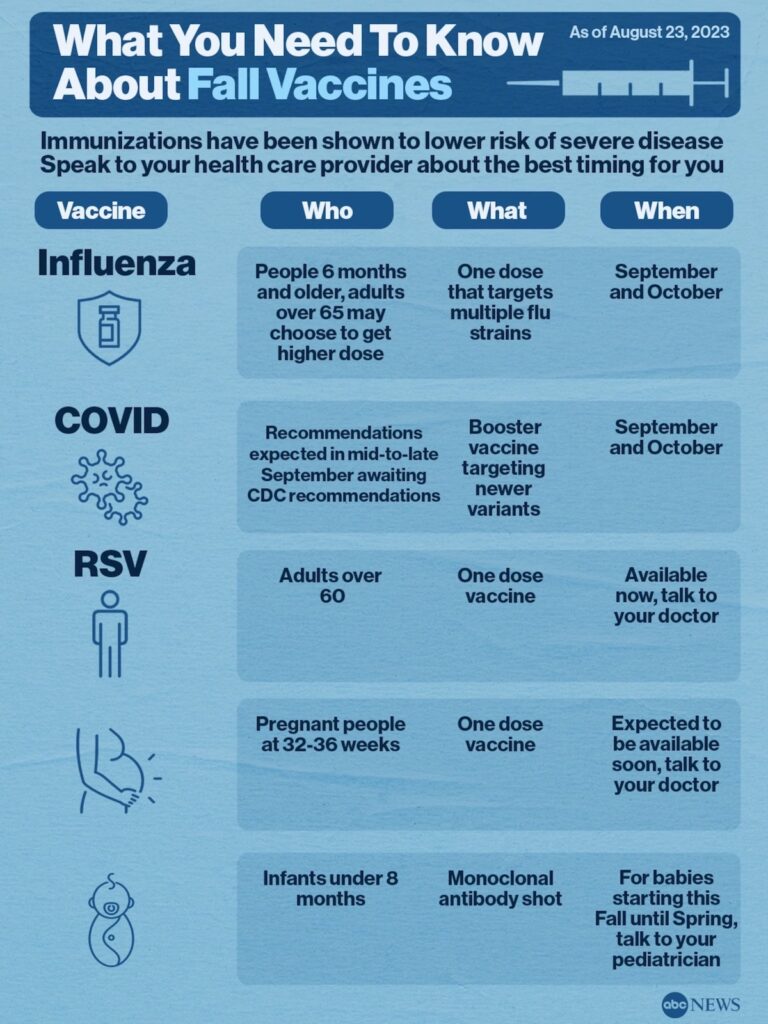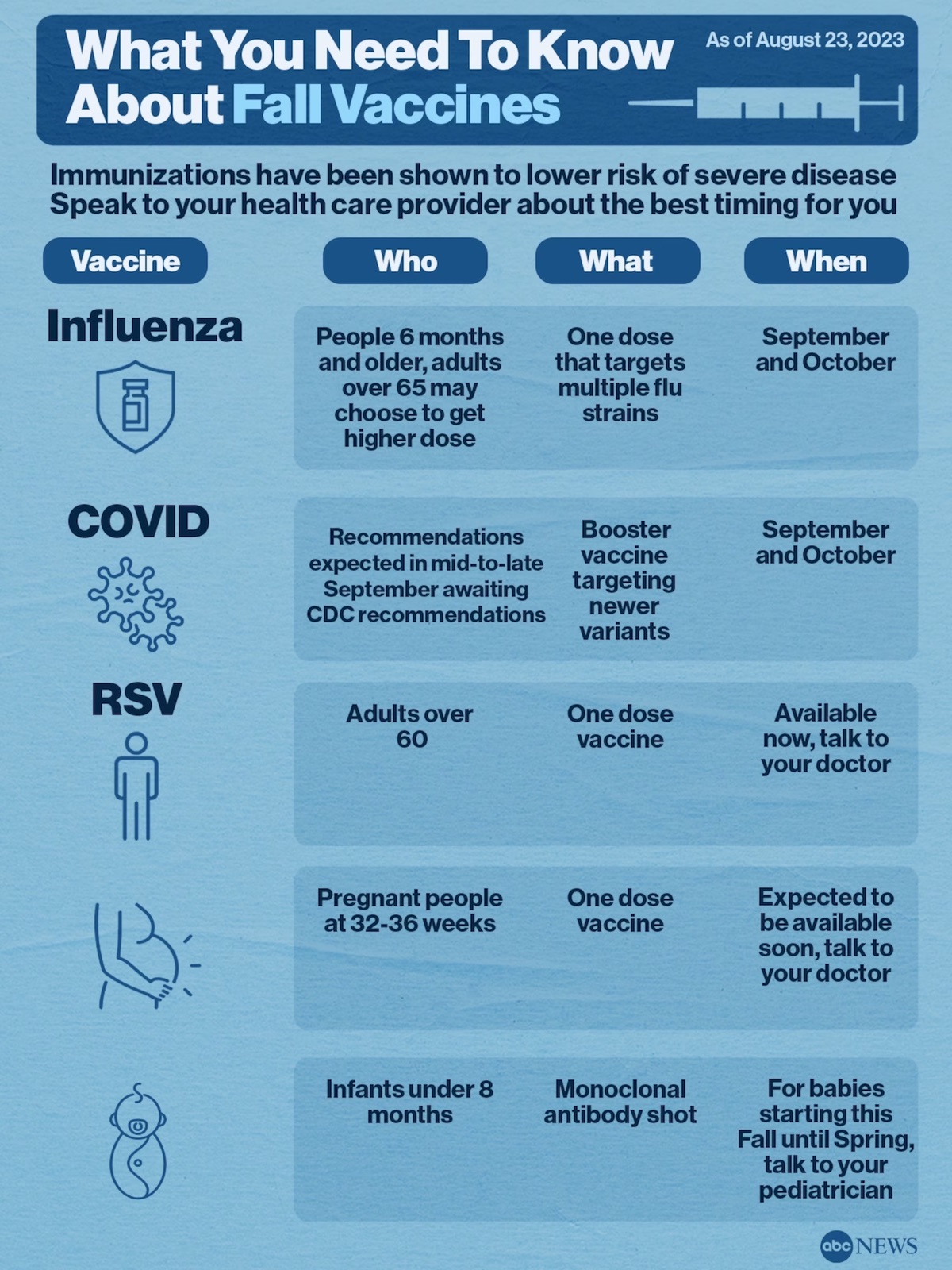A trio of vaccines are emerging for adults this Fall, especially those most at risk, with the recent approval of a new adult Respiratory Syncytial Virus (RSV) vaccine. Consult with your primary care if you have questions, as most public health experts are expecting a new COVID-19 booster along with their annual flu shot and this new RSV vaccine for those at risk.
How is RSV Different Now?
According to a recent article by the Cleveland Clinic, Why Is RSV Different Now Than In Past Years?: "RSV has surged in nearly all populations. According to the U.S. Centers for Disease Control and Prevention (CDC), an estimated 58,000–80,000 children younger than 5 and an estimated 177,000 adults over the age of 60 are hospitalized each year after getting infected with RSV. Of those older adults, as many as up to 14,000 of them die from their RSV infection each year.
Recent RSV seasons have caused those numbers in older populations to increase nearly 10-fold, with about 15 out of every 10,000 people older than 50 being hospitalized for their RSV infection."
Risk factors for severe RSV disease
According to an August 30, 2023 recommendation by the Centers for Disease Control & Prevention (CDC) evidence indicates that persons aged 60 years and older who are at highest risk for severe RSV disease and who might be most likely to benefit from vaccination include those with chronic medical conditions such as:
- Cardiopulmonary disease,
- Kidney disorders,
- Liver disorders,
- Neurologic or neuromuscular conditions,
- Hematologic disorders,
- Diabetes mellitus, and
- Moderate or severe immune compromise (either attributable to a medical condition or receipt of immunosuppressive medications or treatment);
as well as:
- Persons who are frail*;
- persons of advanced age†;
- persons who reside in nursing homes or other long-term care facilities; and
- persons with other underlying conditions or factors that the provider determines might increase the risk for severe respiratory disease.
*Frailty is a multidimensional geriatric syndrome and reflects a state of increased vulnerability to adverse health outcomes. Although there is no consensus definition, one frequently used tool is the Fried frailty phenotype in which frailty is defined as a clinical syndrome with three or more of the following symptoms present: unintentional weight loss (10 lbs [4.5 kg] in the past year), self-reported exhaustion, weakness (grip strength), slow walking speed, and low physical activity.
†Among adults aged ≥60 years, RSV incidence increases with advancing age. Although age may be considered in determining an older adult patient’s risk for severe RSV-associated disease, there is no specific age threshold at which RSV vaccination is more strongly recommended within the age group of adults aged ≥60 years.


